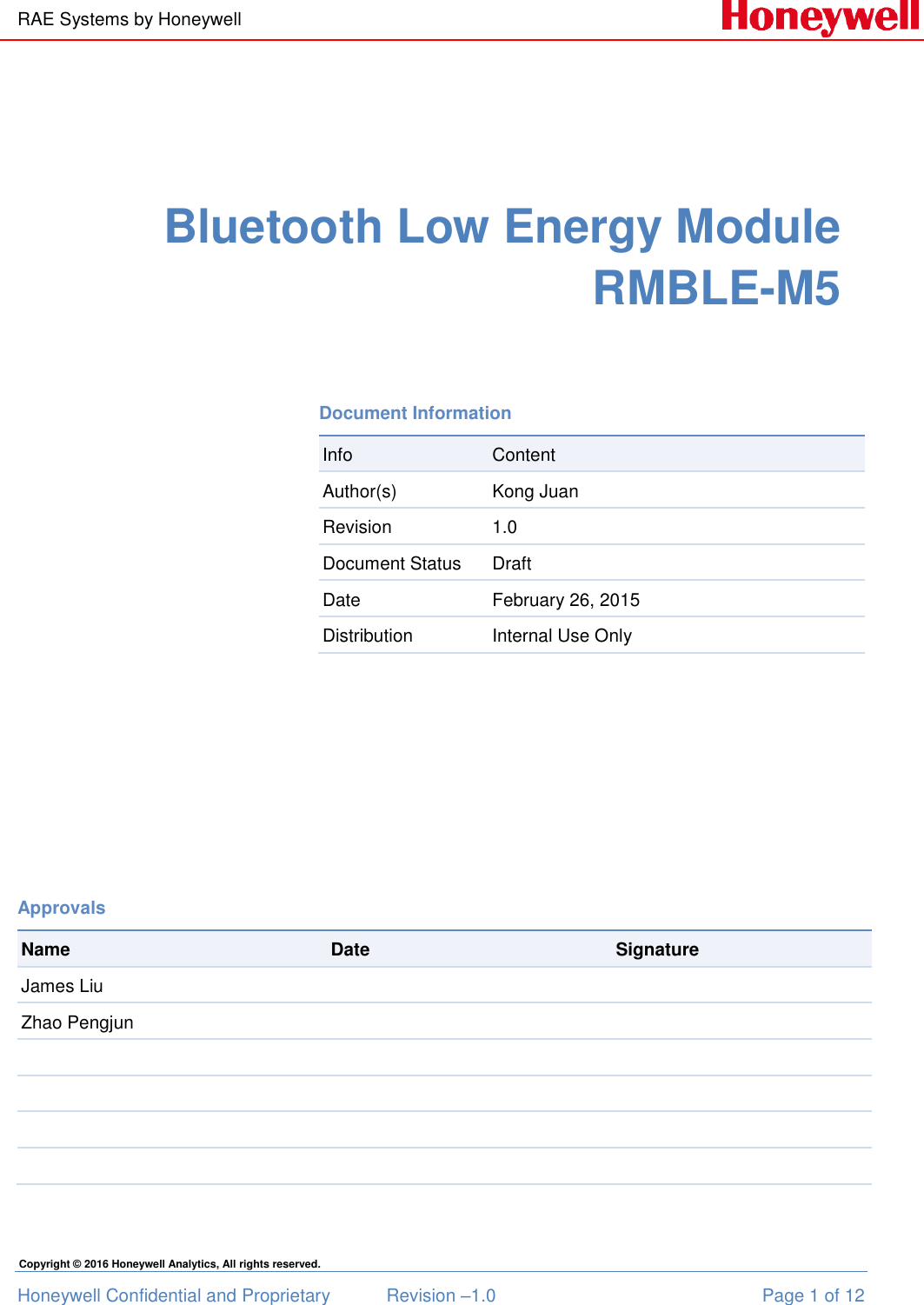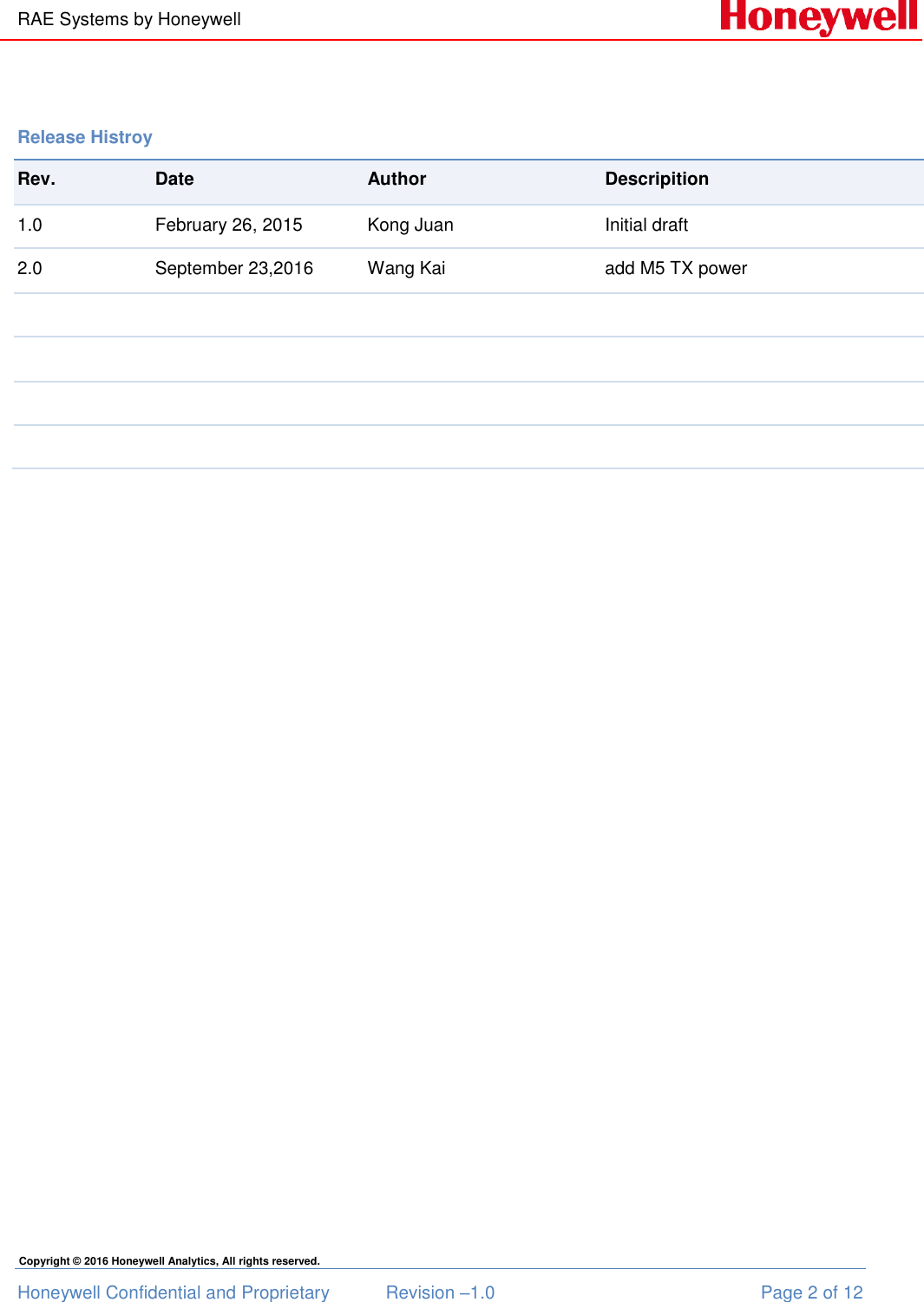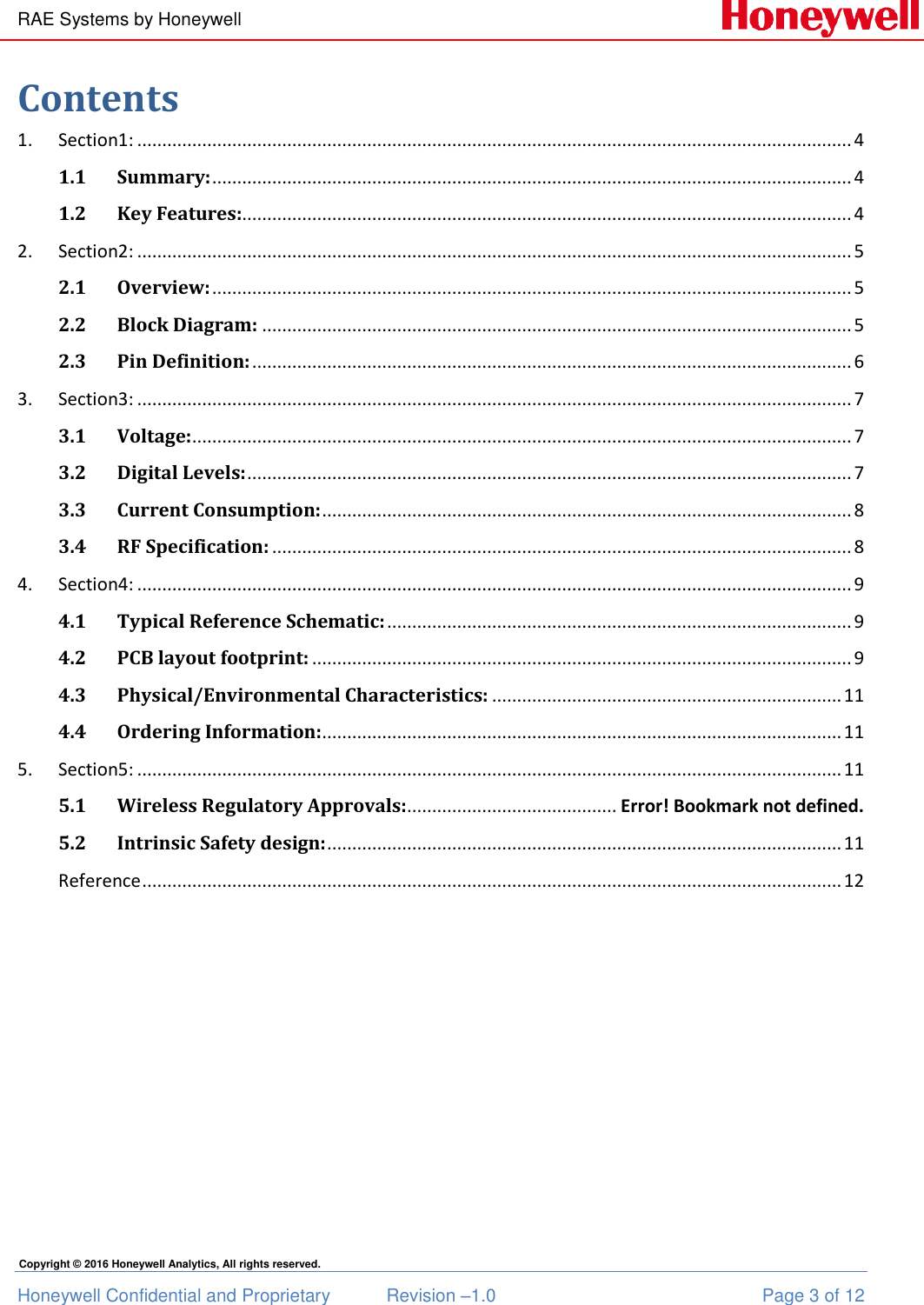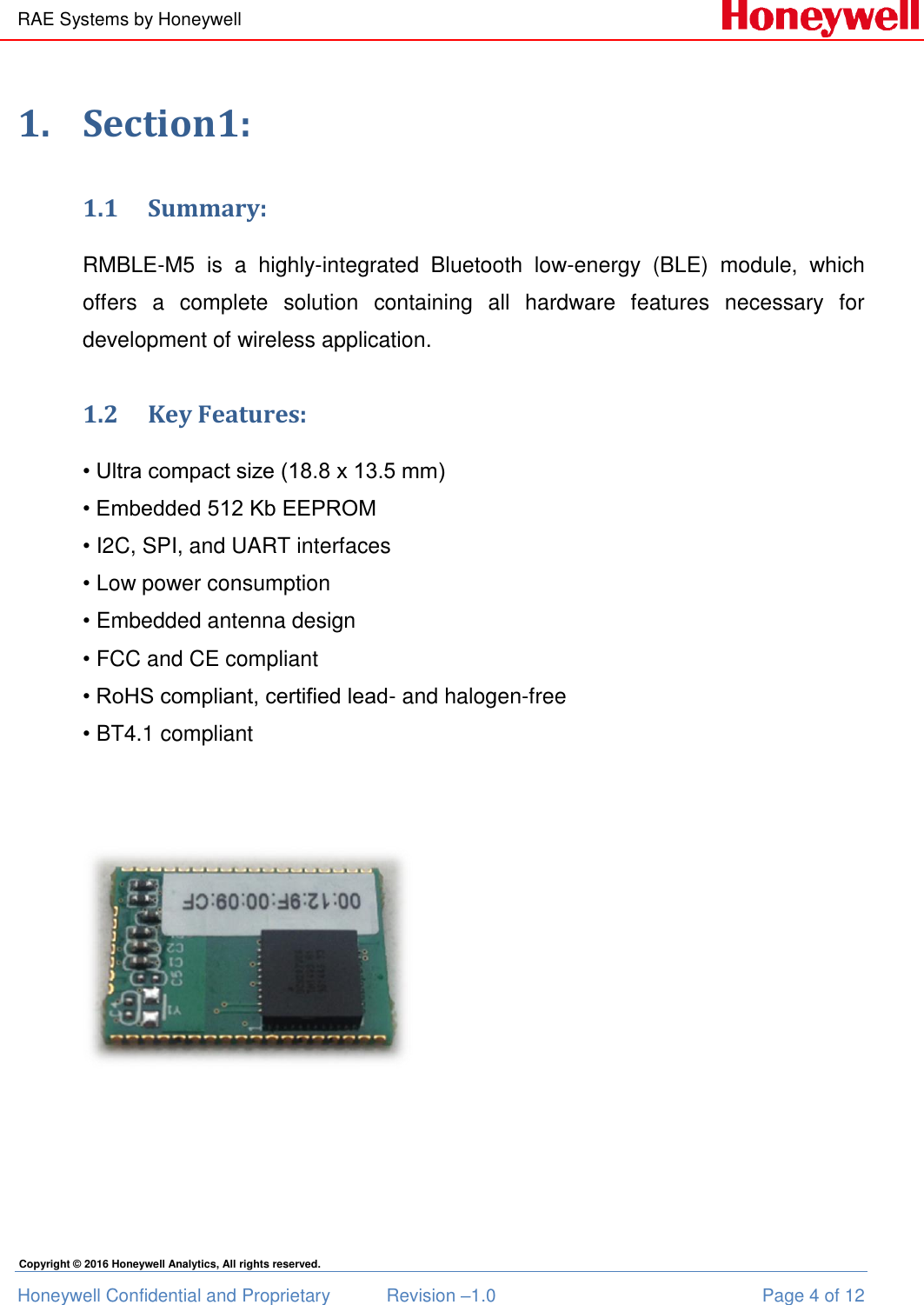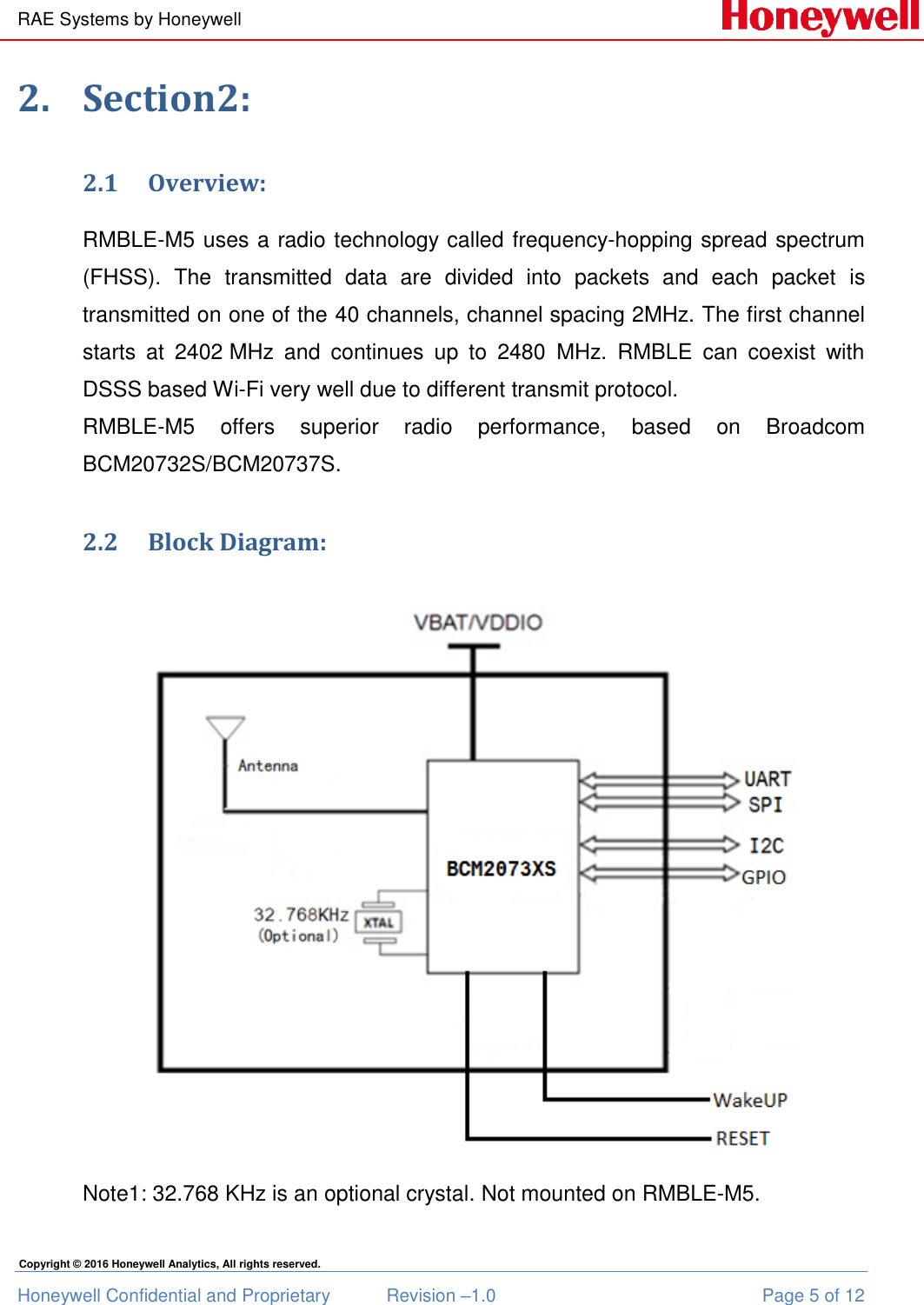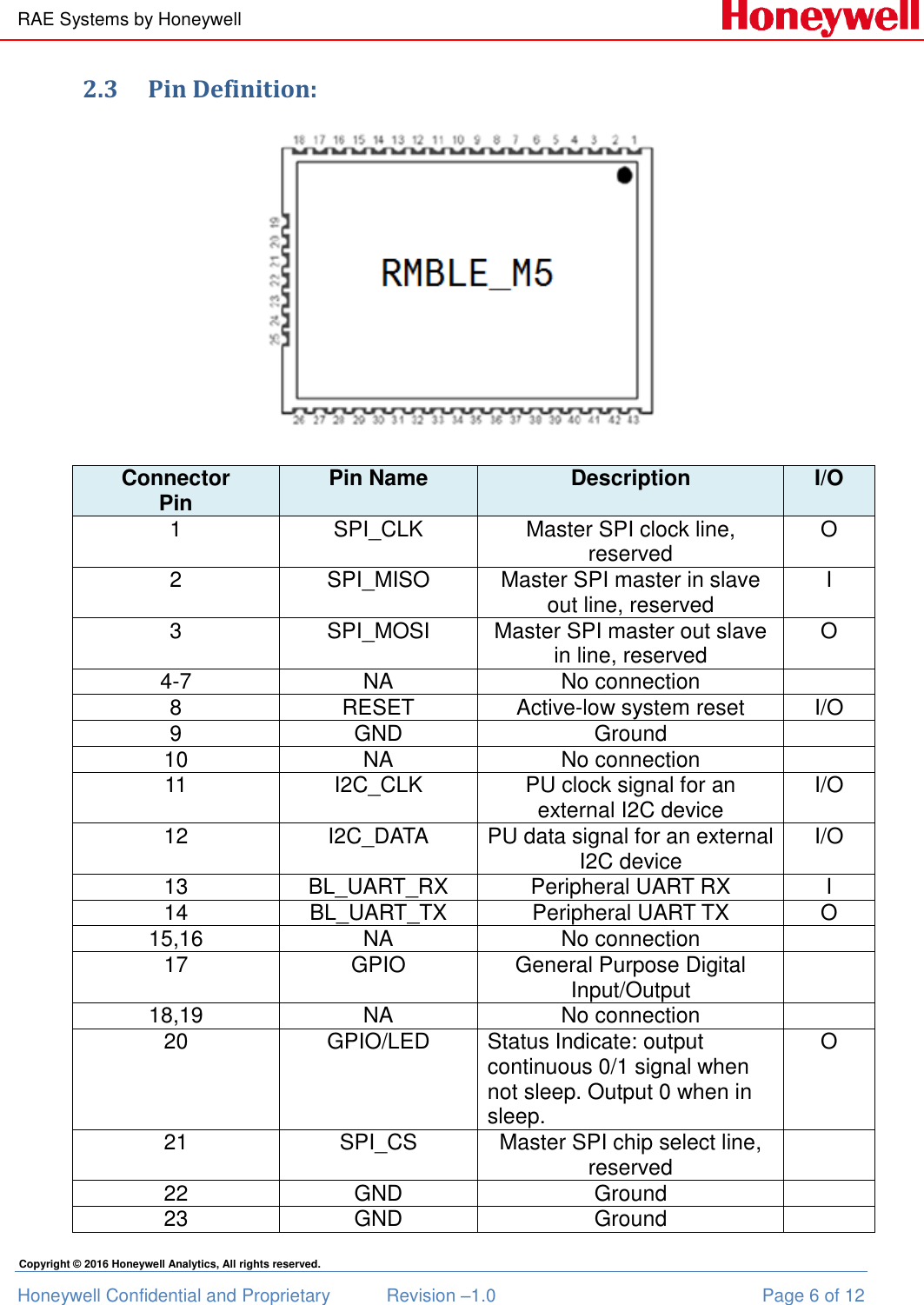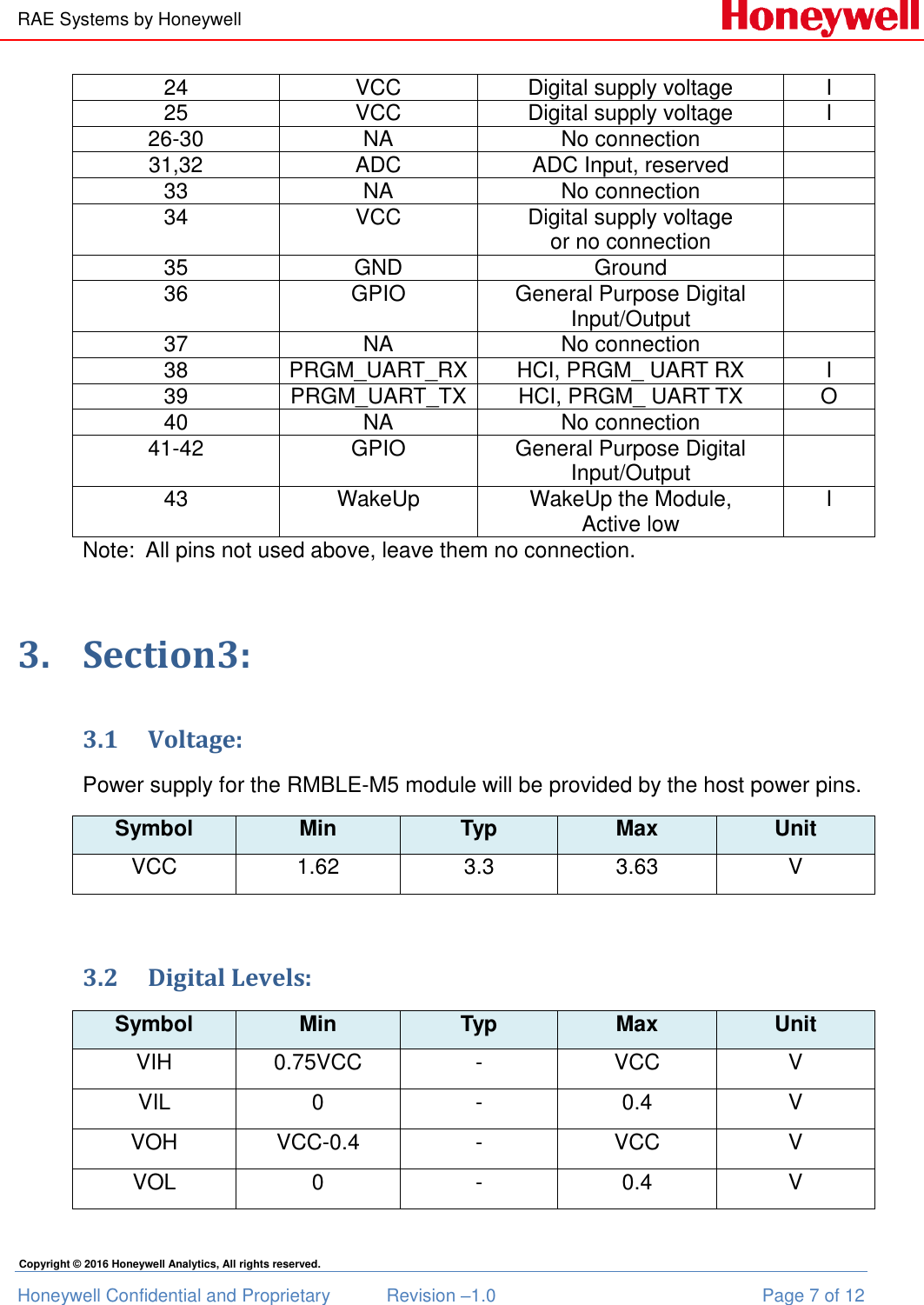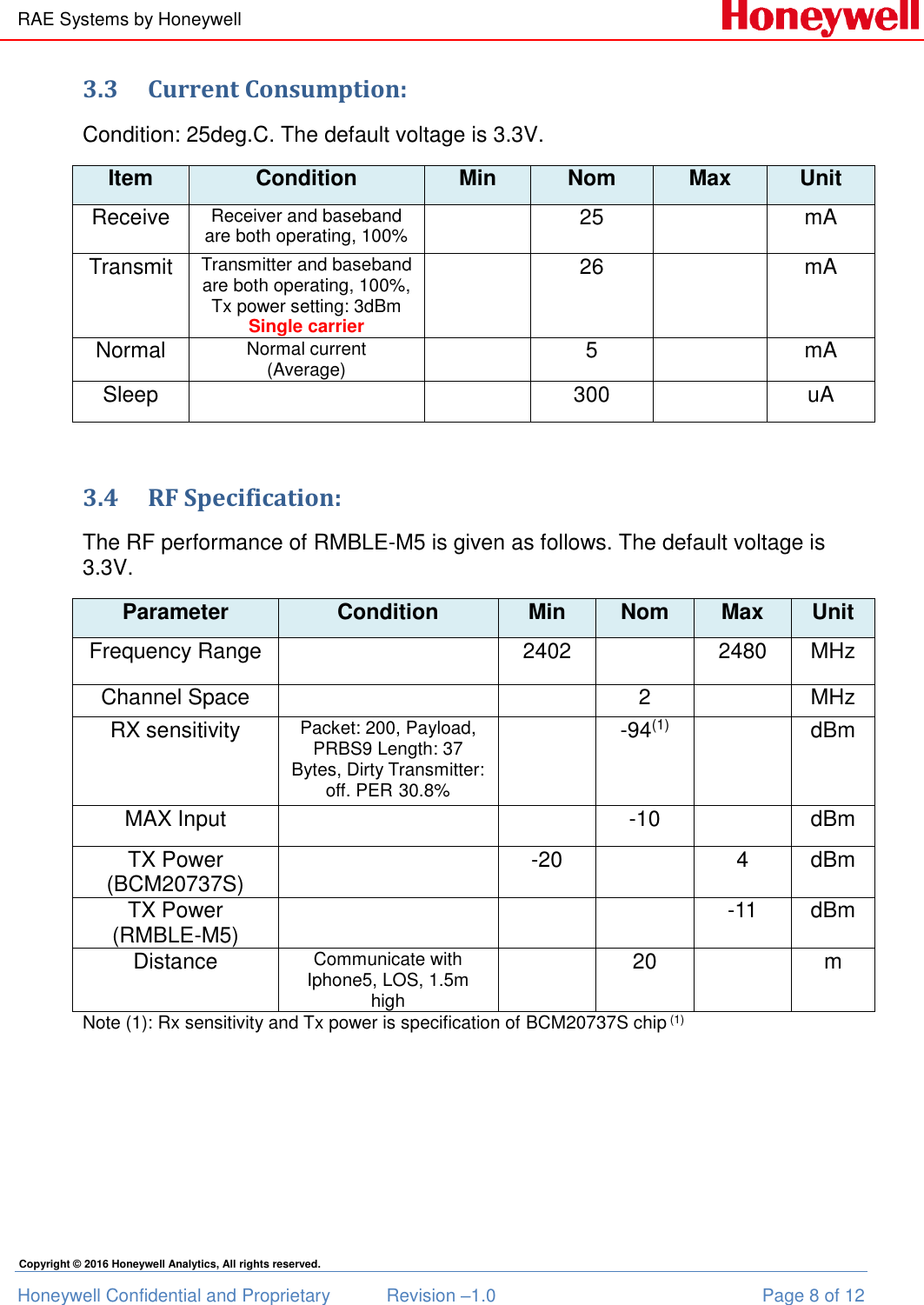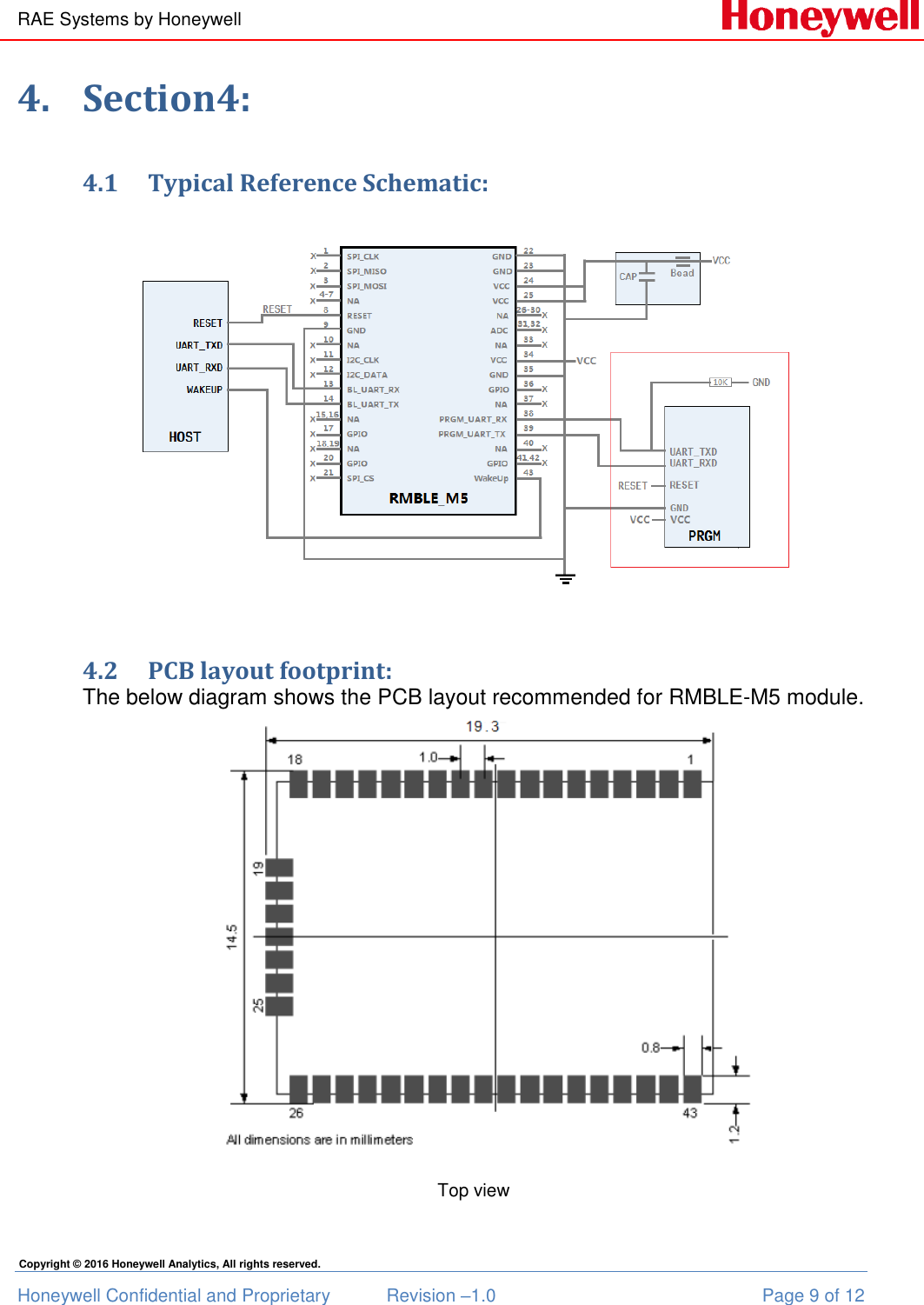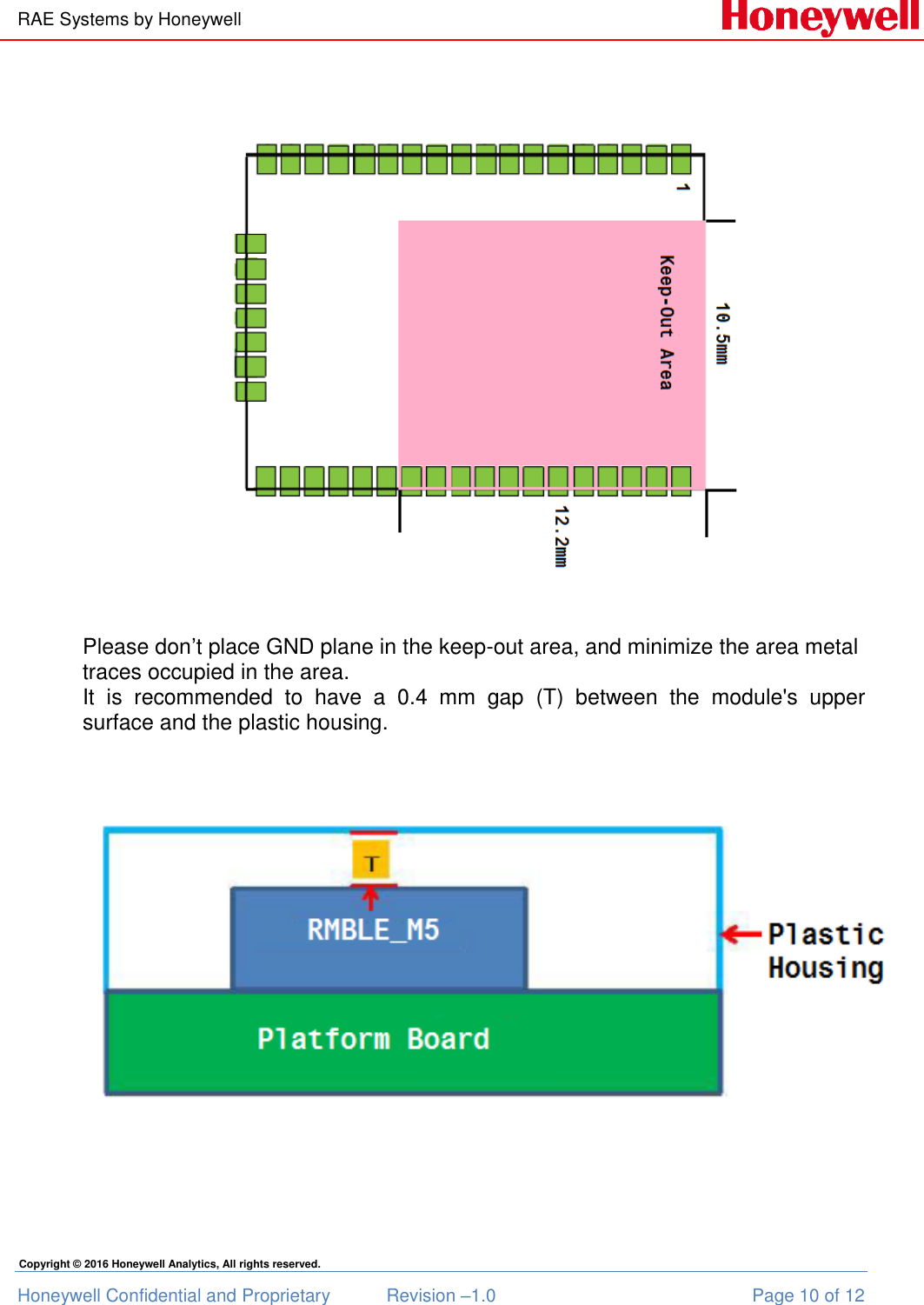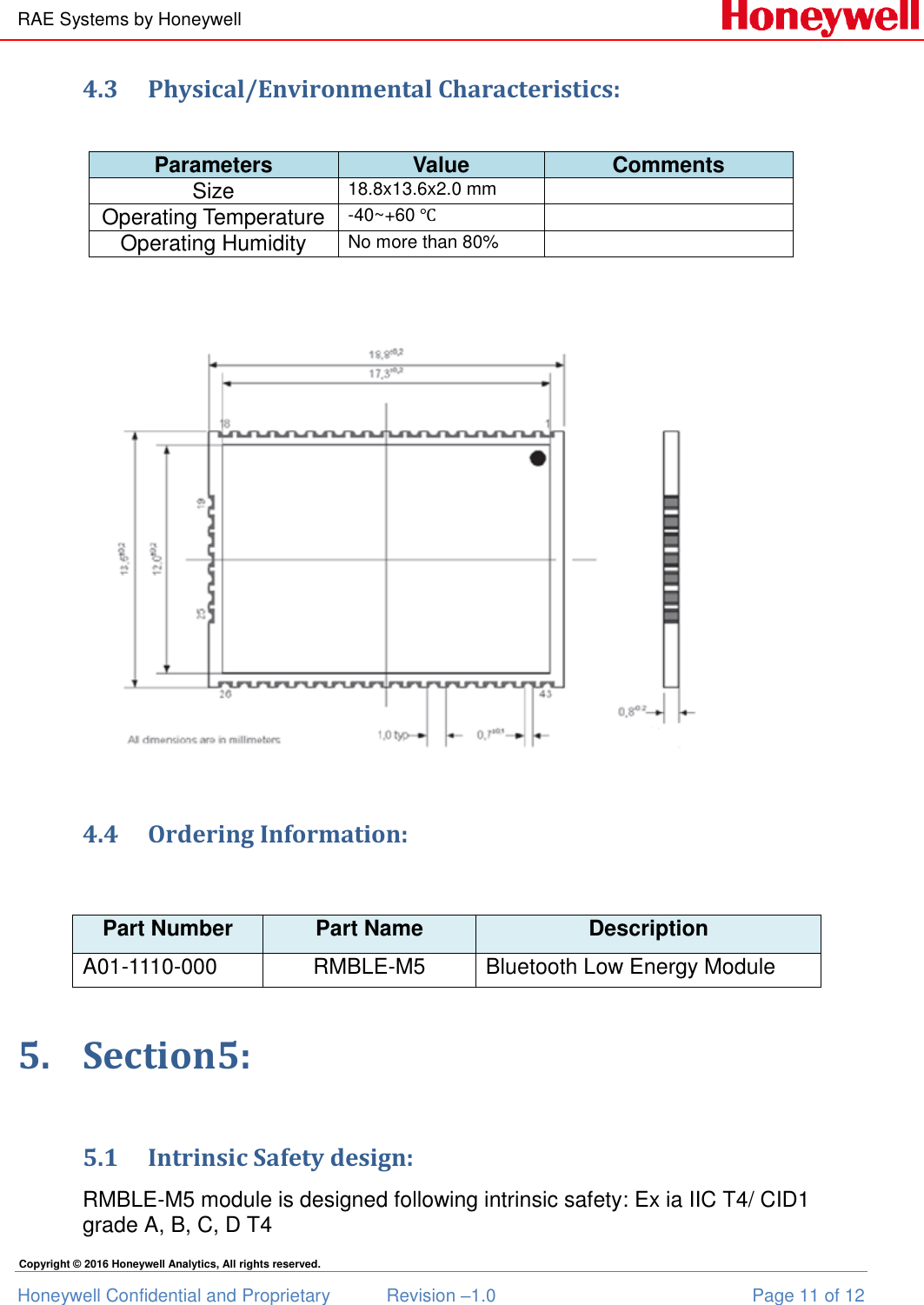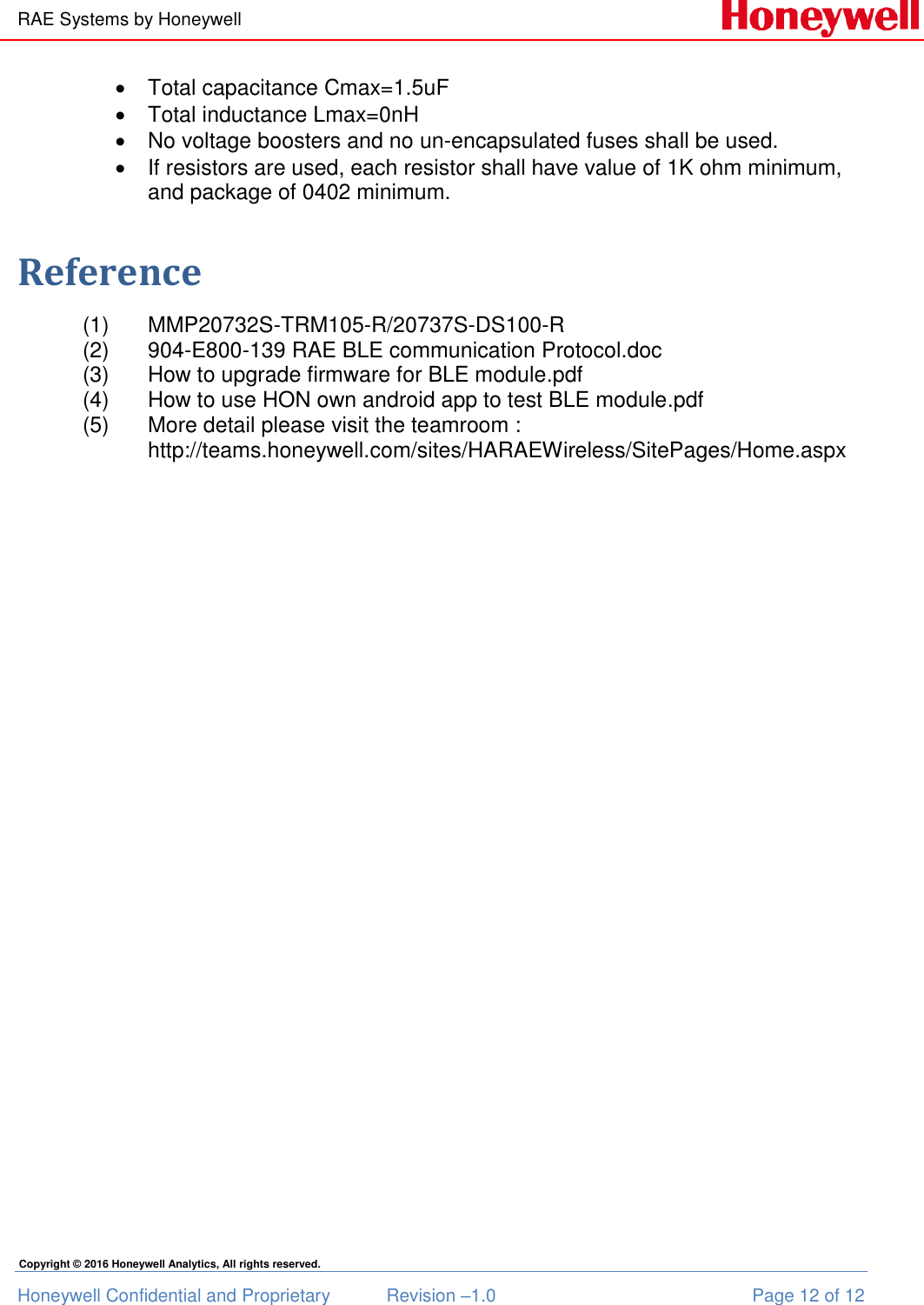Honeywell Analytics Asia Pacific RMBLEM5 Bluetooth Low Energy Module - RMBLE-M5 User Manual RMBLE M5 RMBLE M5 REV2 20160923
Honeywell Analytics Asia Pacific Co., Ltd. Bluetooth Low Energy Module - RMBLE-M5 RMBLE M5 RMBLE M5 REV2 20160923
Contents
- 1. Host user manual
- 2. Module manual
- 3. Host User manual
- 4. RMBLE-M5 User Manual_RMBLE_M5_REV2 20160923
- 5. Sensepoint_XRL_installation_manual_eng_2017-05-08
- 6. User Manual_20180405_v1 - Host_BW ULTRA UM_Manual
RMBLE-M5 User Manual_RMBLE_M5_REV2 20160923
